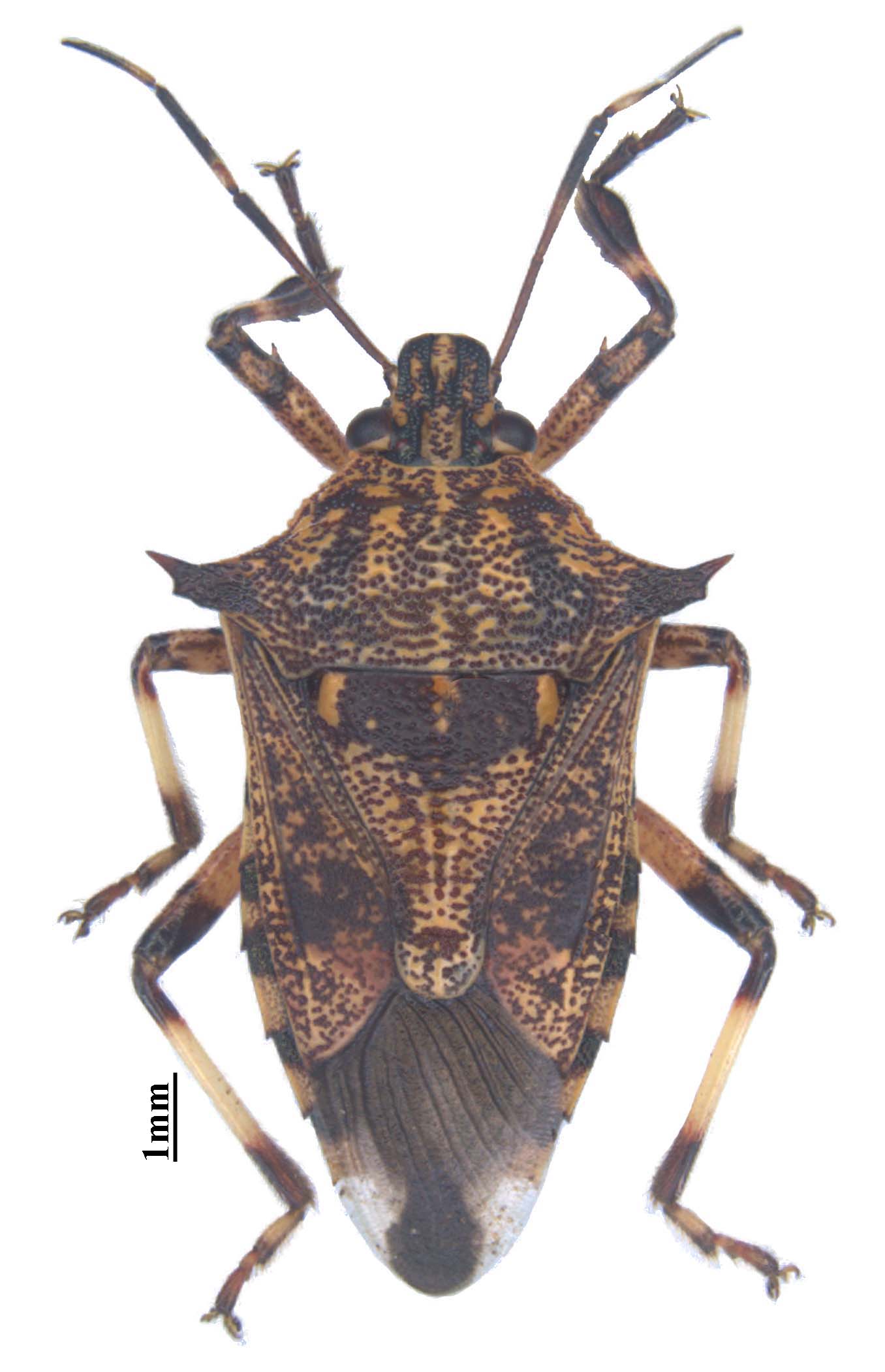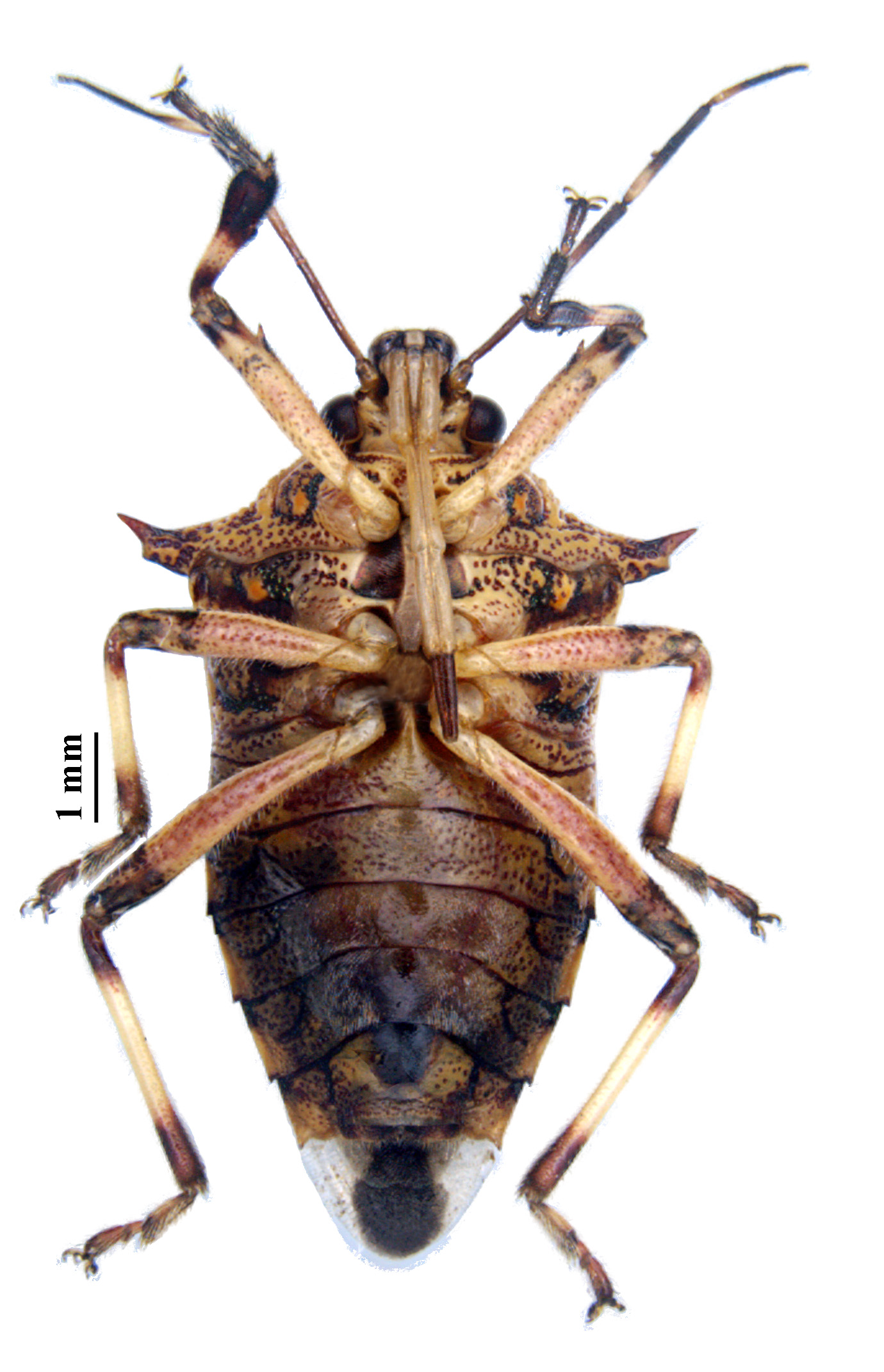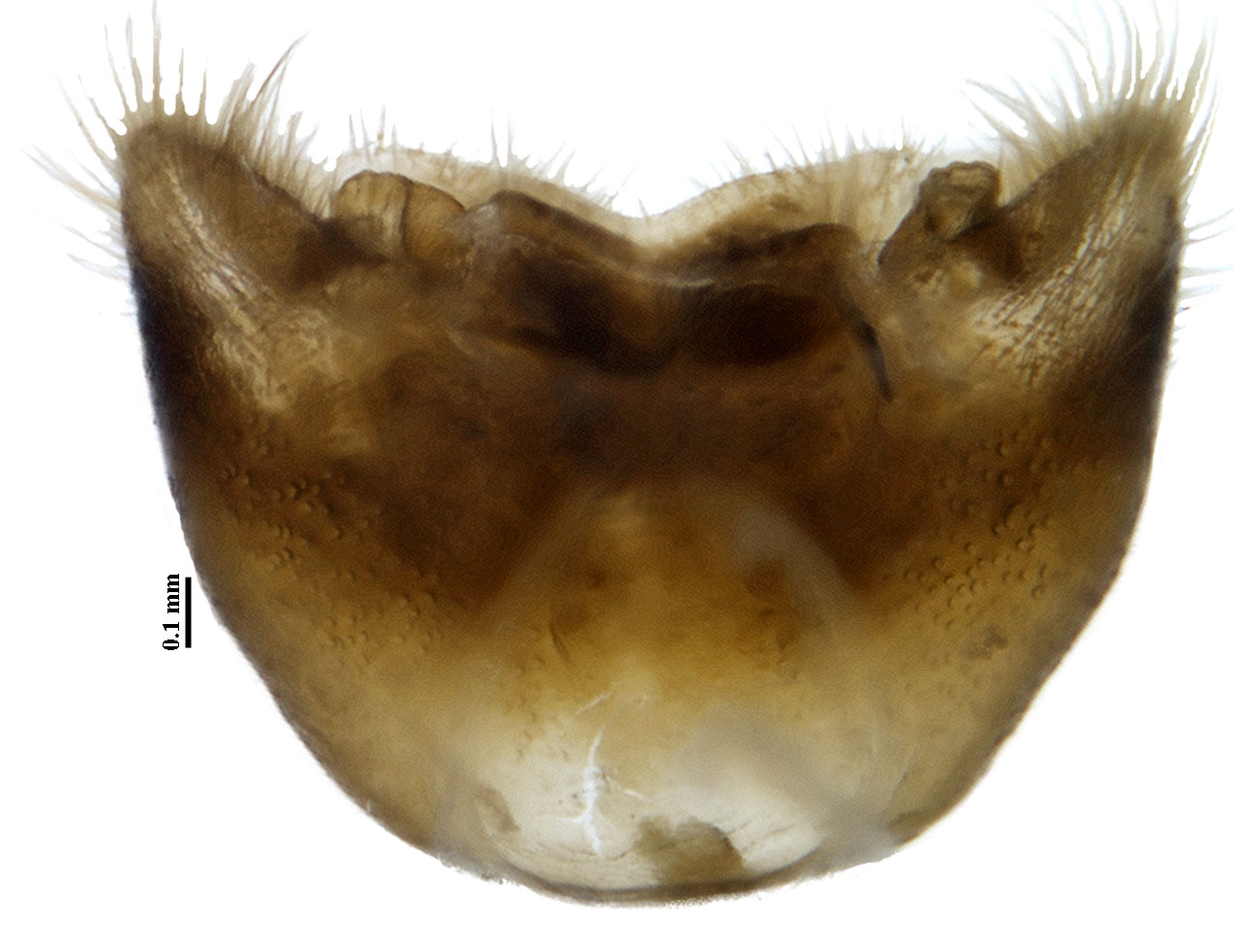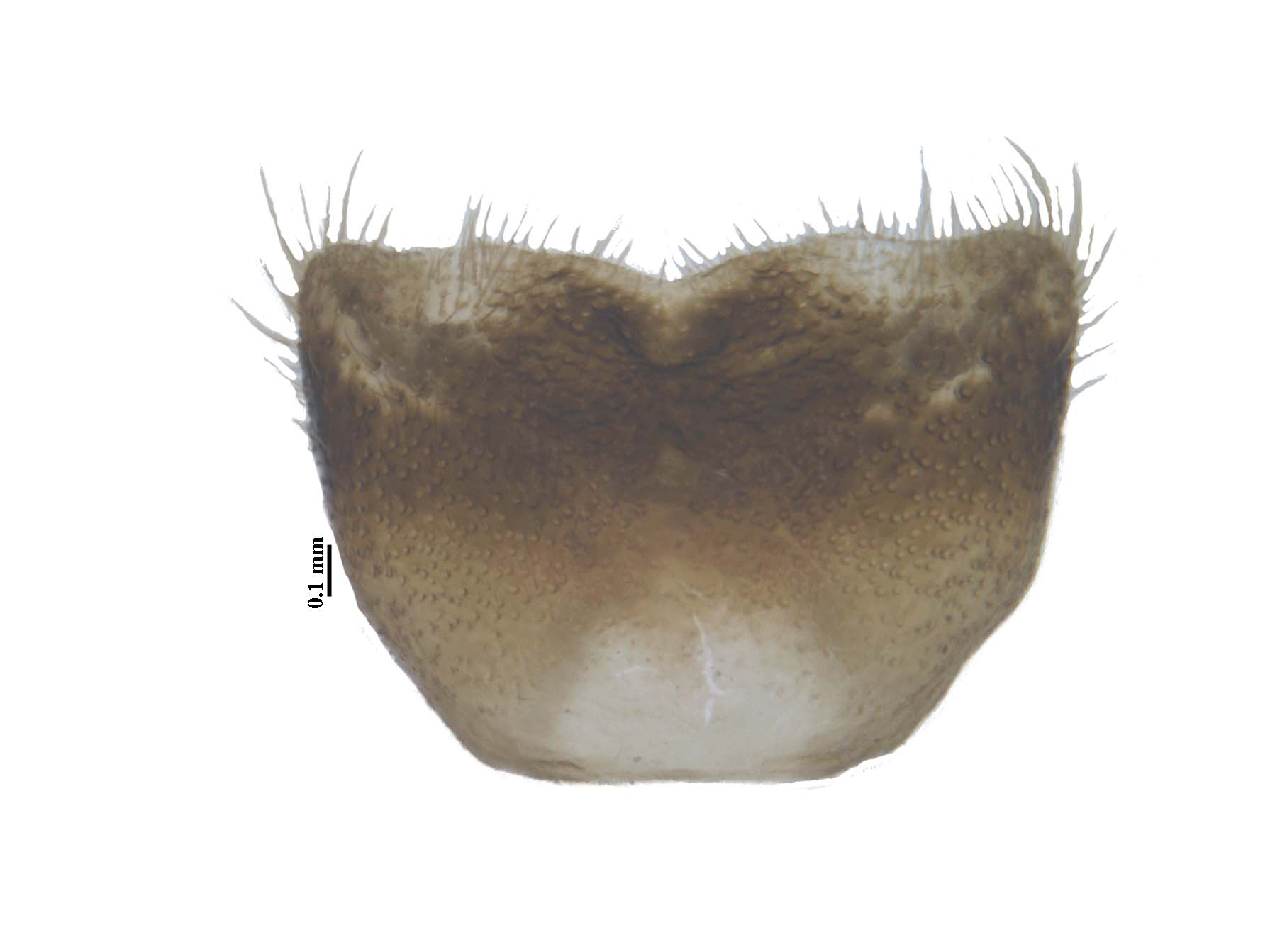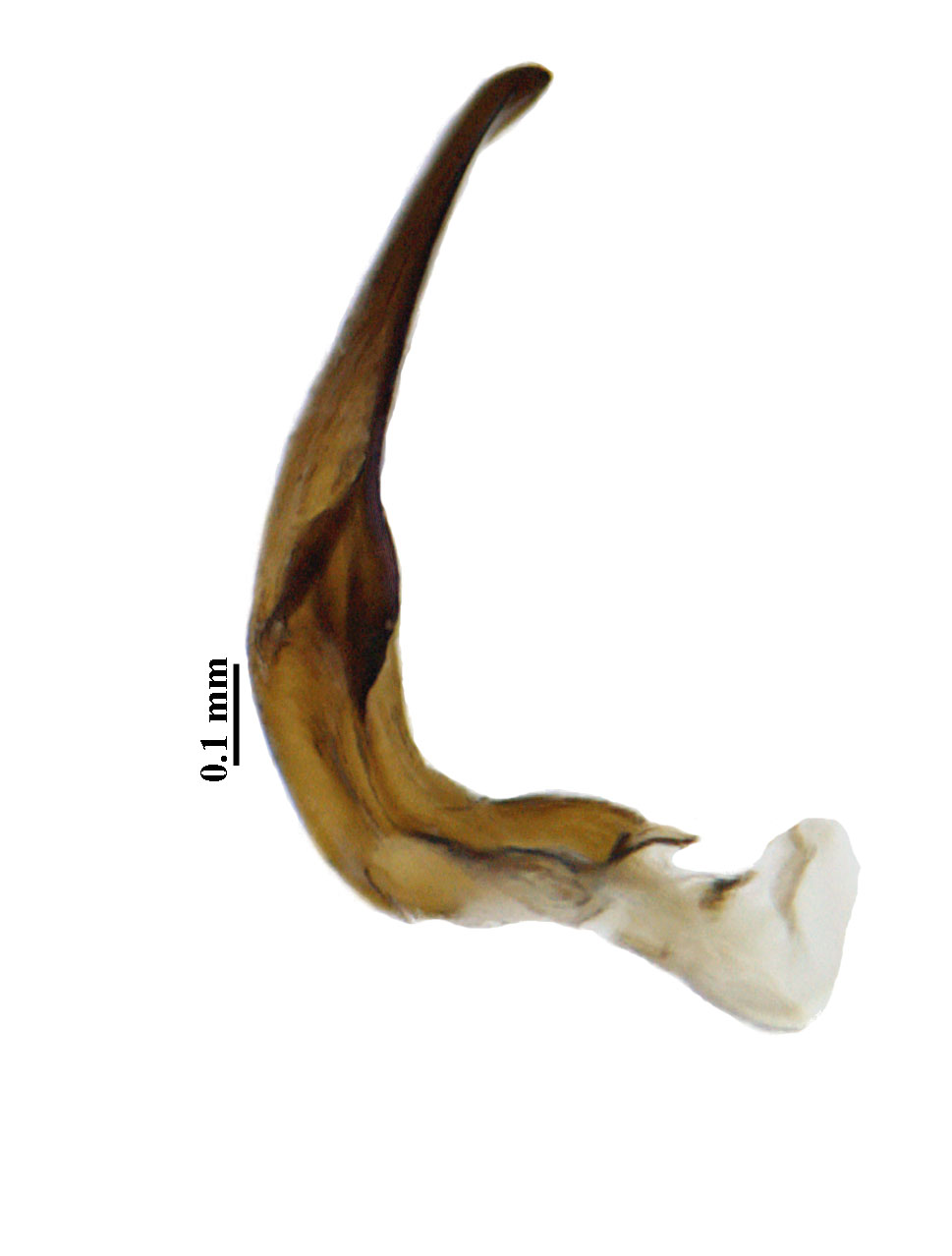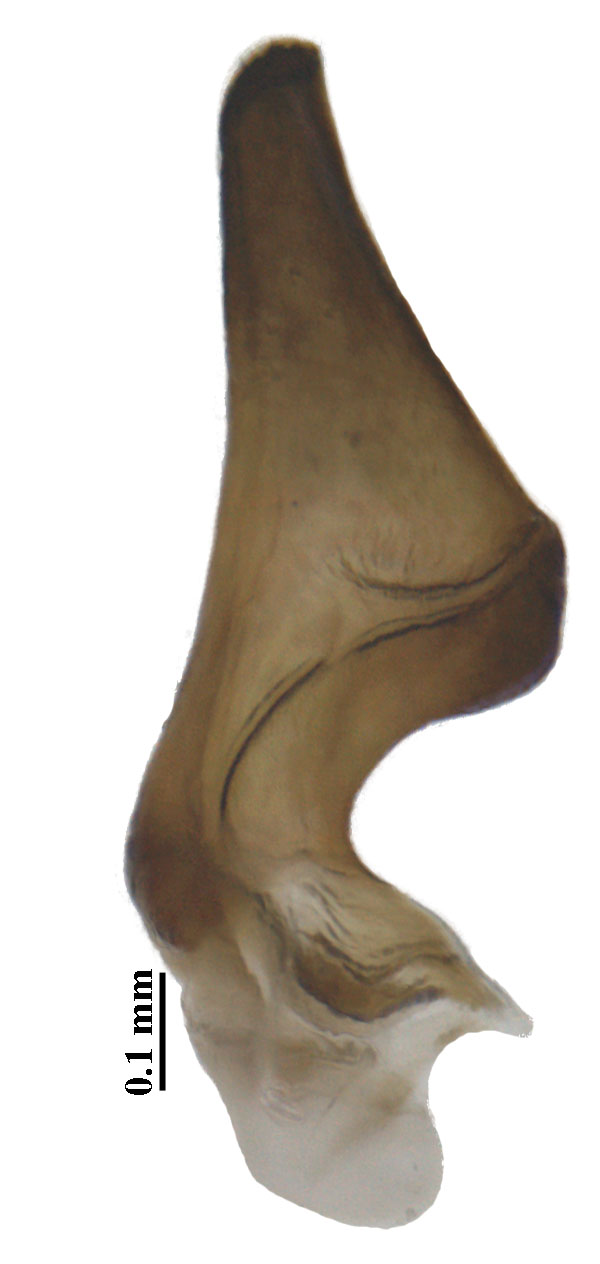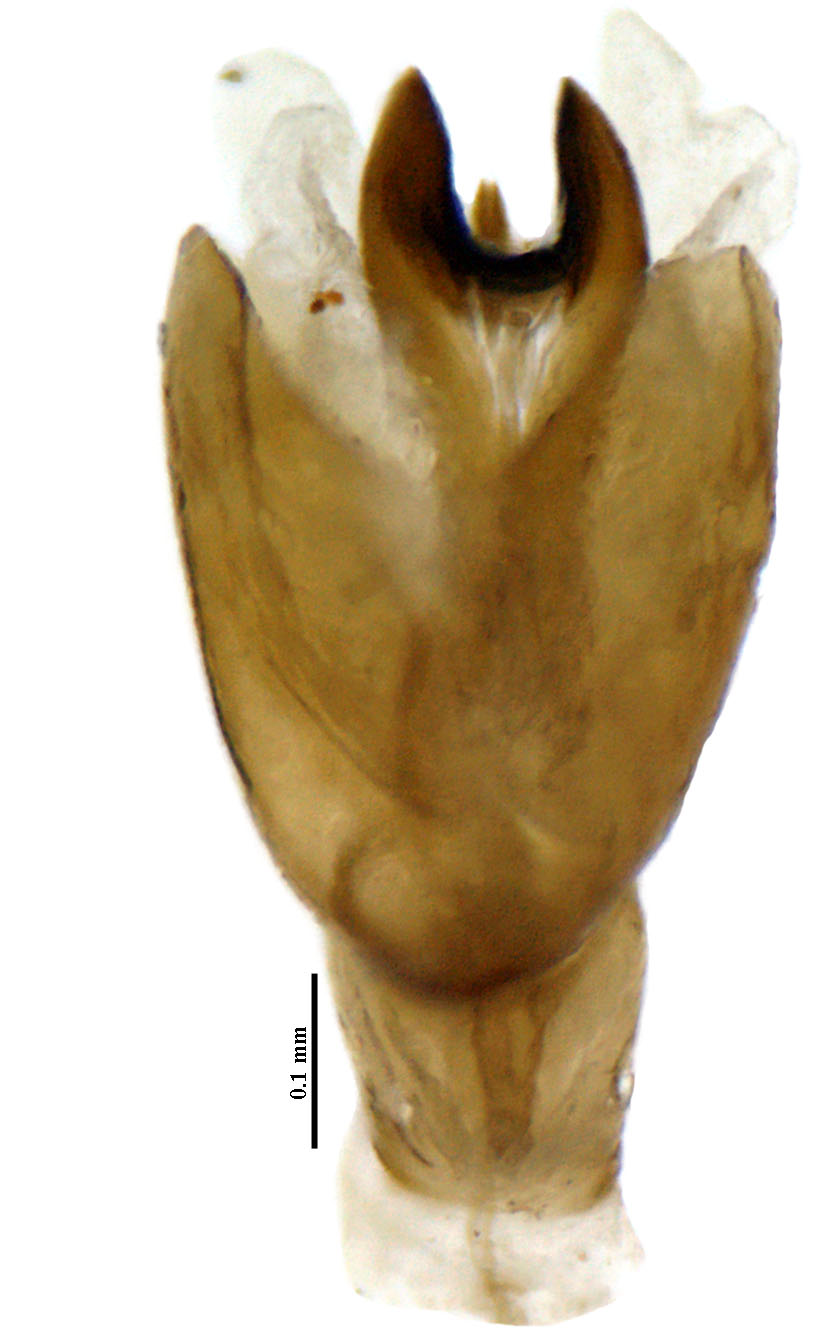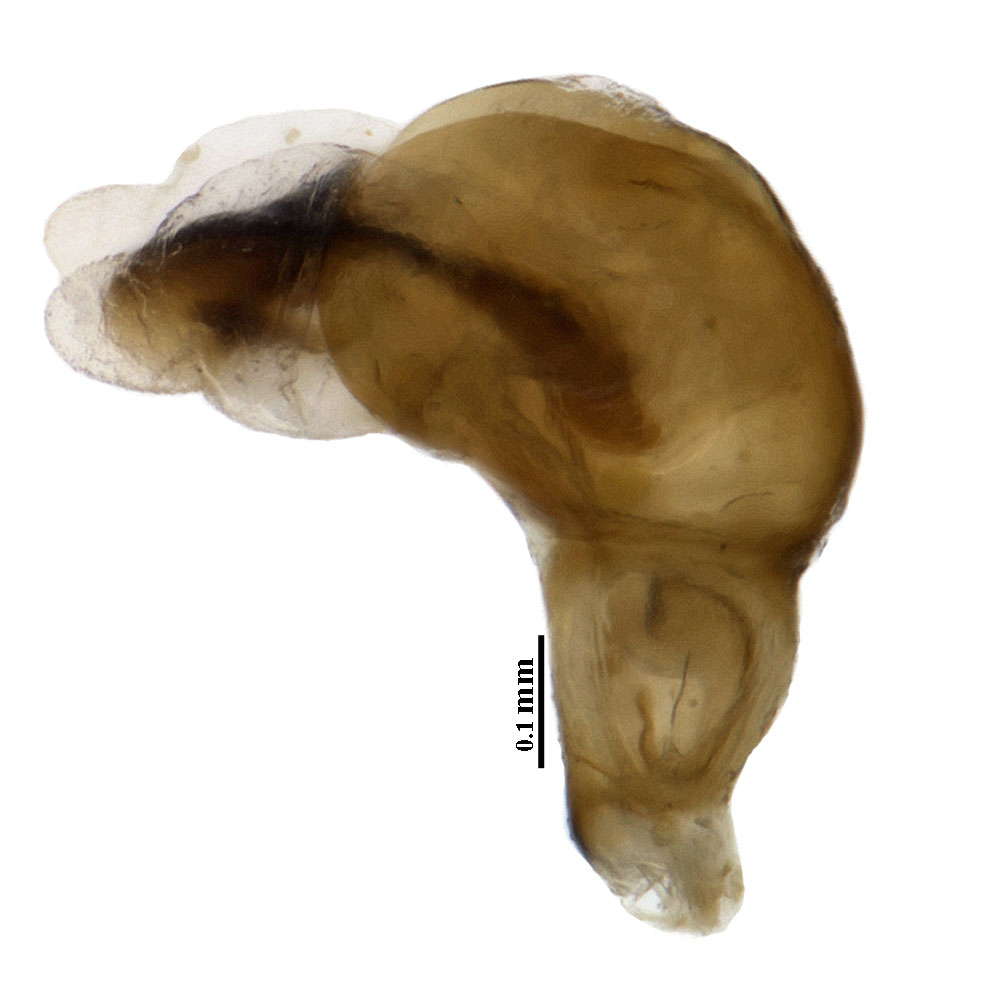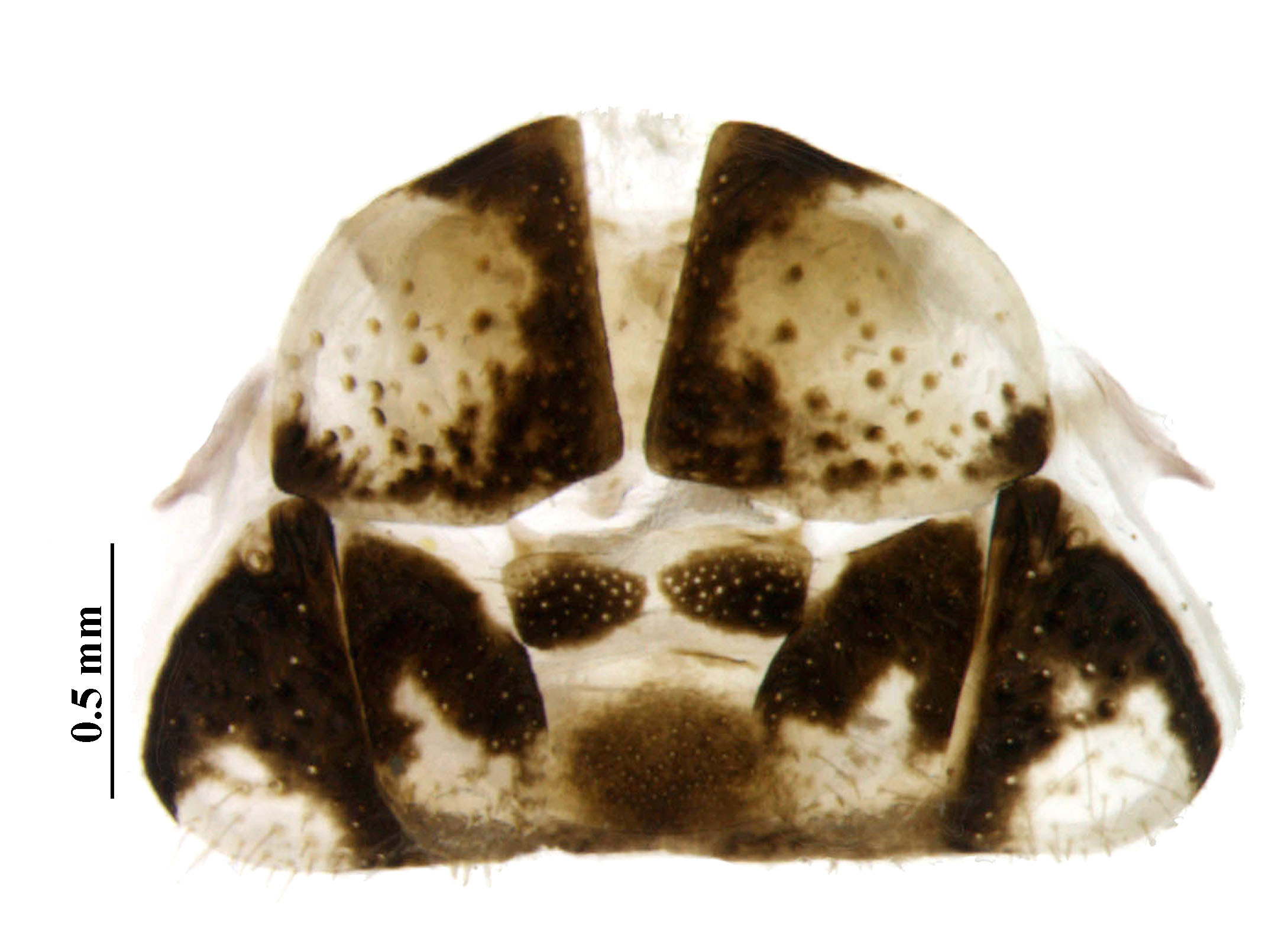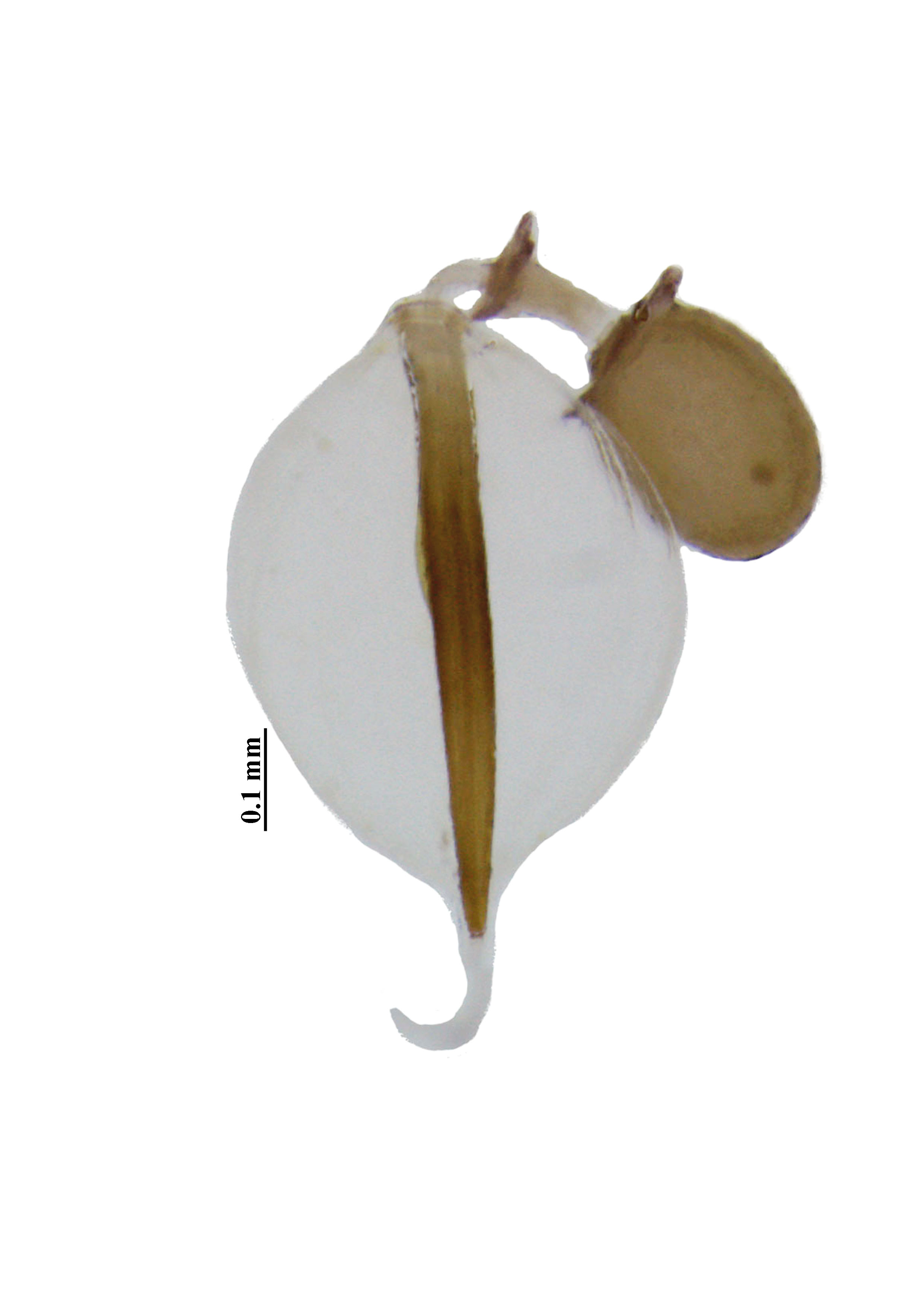Eocanthecona furcellata (Wolff, 1811)
Synonyms:
Cimex furcellatus Wolff, 1811
Arma armigera Herrich-Schäffer, 1844
Eocanthecona armiger (Herrich-Schäffer, 1844)
Canthecona furcellata Dallas, 1851
Cantheconidea furcellata Schouteden, 1907
Eocanthecona furcellata Bergroth, 1915
Taxonomic position
Hemiptera: Heteroptera: Pentatomidae: Asopinae
Diagnosis
- Fore tibiae moderately dilated, with sharp and stout spine on foretibiae, at one third from apex
- Pronotum with anterolateral margins sinuate and crenulate; posterior angles usually with small, sharp, hook-like process
- Humeri developed into moderately elongate bispinose process, with anterior one acute and elongate and posterior one is short and blunt
- Abdominal sternum of males with pilose glands.
- Basal abdominal sternite with short, stout tubercle, in apposition to metasternal process.
Male genitalia:
Genital capsule with dorsal rim broadly and deeply concave, ventral rim broadly and shallowly concave; paramere with crown moreorless triangular; a pair of basally fused process of aedeagus; aedeagus short and stout.
Female genitalia:
Apical receptacle of spermatheca large, orbicular without any finger-like processes.
Biology:
Egg period: 7-8 days. 5 instars and total life cycle is around 30 days.
Host plants/Prey:
Feeds on larvae of Hyblaea puera and Antheraea mylitta (Kirkaldy, 1909)
Comments:
This is the most common predatory pentatomid species available in nature.
Selected References:
Wolff, J. F. (1811). Icones Cimicum descriptionibus illustratae. Vol. 5. Johann Jacob Palm, Erlangen, pp. 167-208, pls. 17-20.
Atkinson, E. T. (1888). Notes on Indian Rhynchota, Heteroptera No. 3 & 4. Journal of The Asiatic Society of Bengal, 57, 1-72, 118-184, 333-345.
Distant, W. L. (1902). Rhynchota Vol.I, Heteroptera. In: Blanford, W. T. (Ed). The Fauna of British India Including Ceylon and Burma. Taylor and Francis, London. 307+438 pp.
Chatterjee, N. C. (1934). Entomological investigations on the spike disease of sandal (24). Pentatomidae (Hemipt.). Ind. For. Rec., 20, 1-31.
Hegde, V. (1995). Heteroptera (Insecta) from the Eastern Ghats, India. Occ. Paper Rec. Zool. Surv. India No. 168: 14-39.
Salini, S (2006). Faunistic studies on Pentatomidae (Hemiptera: Pentatomoidea) in Karnataka. M. Sc. Thesis, Department of Agricultural Entomology, University of Agricultural sciences, Bangalore. (Unpublished)
Salini, S and Viraktamath, C. A. (2015). Genera of Pentatomidae (Hemiptera: Pentatomoidea) from south India–An illustrated key to genera and checklist of species. Zootaxa, 3924 (1): 1–76.
Thomas, D. B. (1994). Taxonomic synopsis of old the world Asopine genera (Heteroptera: Pentstomidae). Insecta Mundi., 8(3-4), 145-212.
